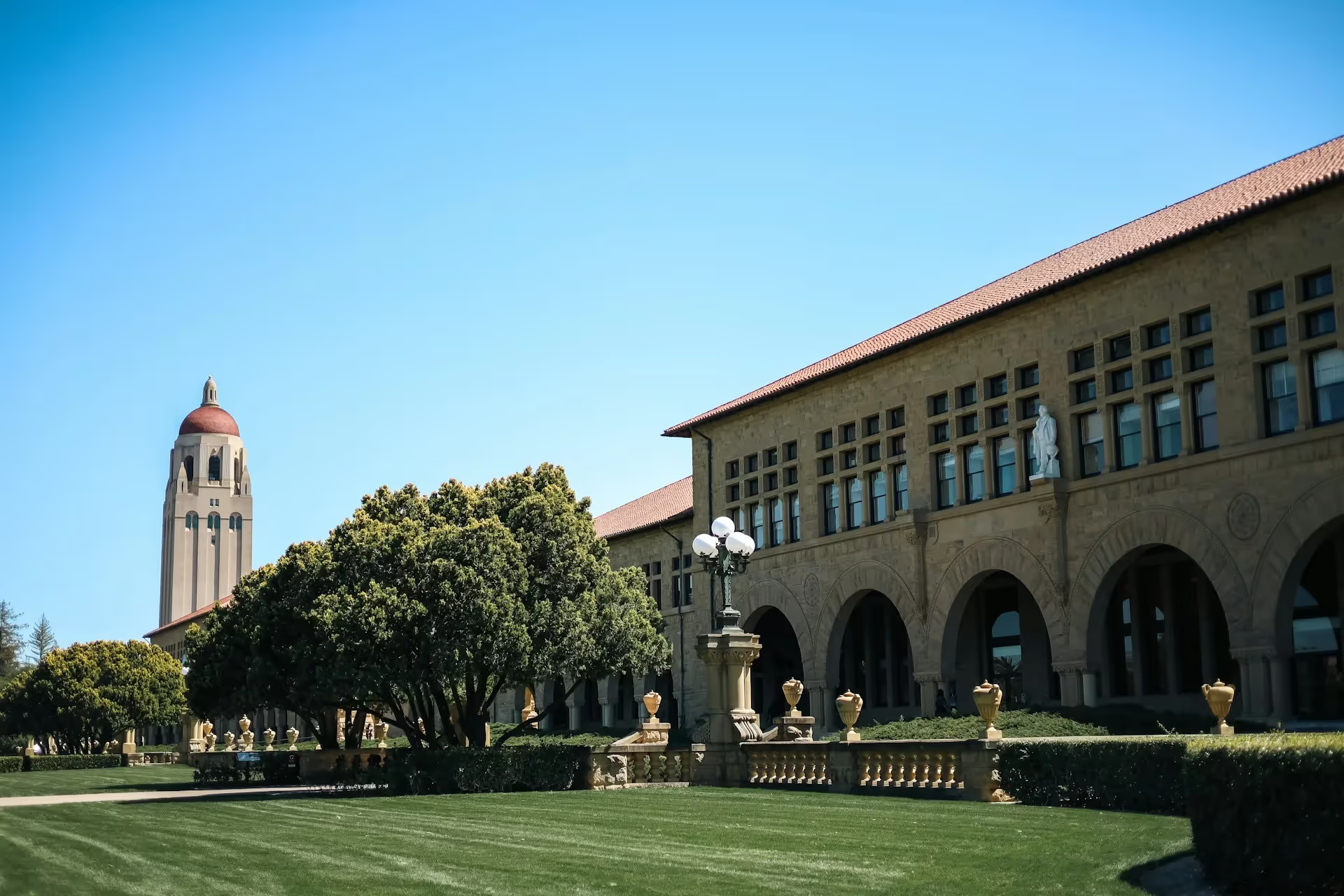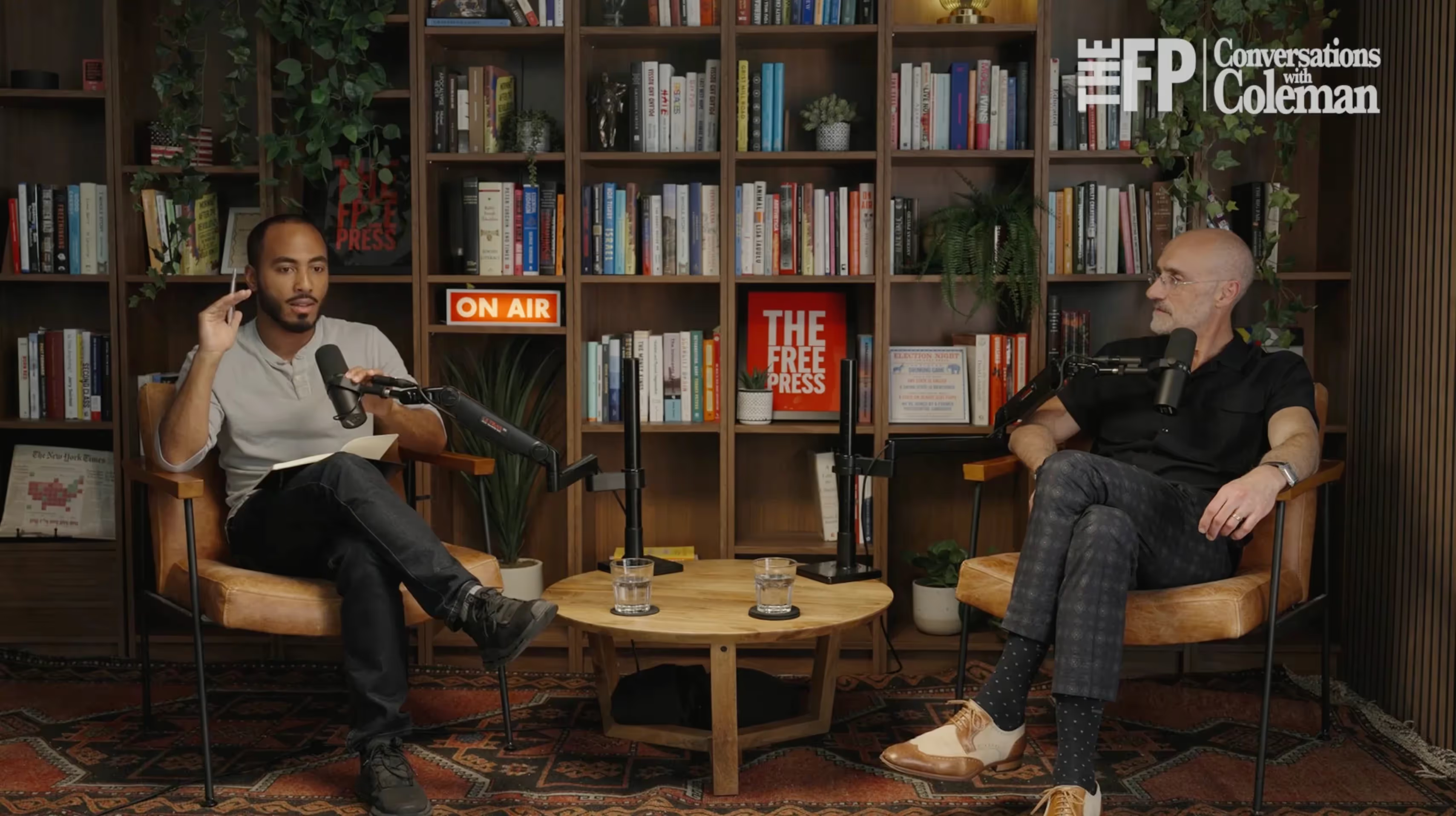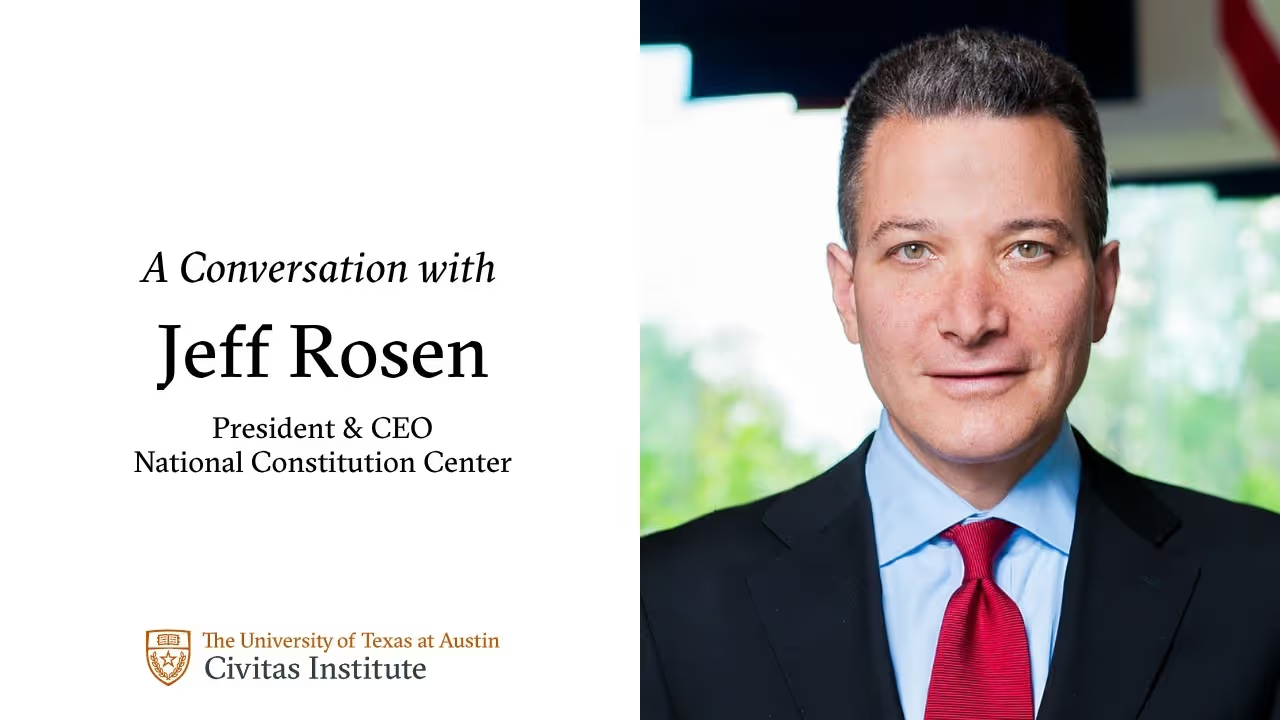
Understanding the Mission of Civic Thought
The impetus for the new schools of civic thought is a widely shared sense that higher education institutions have lost their way. What is the pedagogical way forward?
In May of 2022, the Board of Regents of the University of Texas approved a motion to establish the School of Civic Leadership. The impetus for the new school was, in part, a widely shared sense that higher education institutions have lost their way. The problem is deeply felt but hard to articulate. What exactly has gone wrong?
Many worry that educational institutions have become dogmatic hotbeds for a particular worldview. But there are two different worries here: one is that higher education institutions have become dogmatic. The other is that such institutions have become dogmatic in the wrong way. Let’s first define our terms.
An educational institution is ‘dogmatic’ if it aims to instill a fixed set of beliefs in its students and if it treats them, in effect, as empty vessels to be filled up by the ‘knowledge’ of their instructors. To be sure, there is a time and a place for dogmatism, so defined. Parents, for instance, should be dogmatic when it comes to the moral formation of their children, as should seminaries when it comes to the theological formation of seminarians. But, one might think dogmatism has no home in higher education institutions.
Unlike families and seminaries, higher education institutions are (or ought to be) places of free and open inquiry, places that teach students how to think, not what to think, and dogmatism cuts against and undermines the educational mission of a university, so understood. If one shares this commitment, one is likely to understand oneself as feeling the first worry identified above: higher education has lost its way, not because it instills ‘the wrong’ worldview, but because it seeks to instill any worldview at all.
Of course, this needs some qualification. Some (or rather a great deal) of dogmatism is, in fact, appropriate in a university. Regarding the range of subjects that can be loosely grouped under the heading ‘STEM,’ professors should be dogmatic. An organic chemistry or structural engineering class should aim at teaching students what to think about a particular subject matter for the simple reason that, as a society, we want doctors and engineers and other such professionals who have mastered the relevant body of knowledge, not ones who have come to their own conclusions about the relevant subject matter through a process of free and open inquiry. Regarding assessment, it is perfectly acceptable in such contexts to be ‘dogmatic’—penalize or even fail a student for thinking the wrong thing. We could distinguish between facts and values here and say (very roughly) that dogmatism is appropriate in higher education when it comes to facts, but not when it comes to values. Regarding the latter, we might say that no professor has any business telling students what to think. Each student is a person, and as a person, it is her right and duty to make up her mind about such things.
I am, in broad strokes, sympathetic to this line of thought. But, as just formulated, it comes at a cost. According to the Board of Regents, the mission of the School of Civic Leadership is (in part) to “educate students in the values and principles of a free society”. But this presupposes that there are some values and principles that it is the purpose of a university to inculcate—that, at least when it comes to these particular beliefs, students ought to be treated like empty vessels to be filled up by the knowledge of their instructors. Those who feel the first worry I identified above—that universities have erred by becoming ‘dogmatic’—should conclude that the School of Civic Leadership has no business doing what it has been tasked to do. It strikes me that this is a reductio. I think the School of Civic Leadership should instill “the values and principles of a free society” in its students.
We may be tempted to understand ourselves as feeling the second worry rather than the first. The problem, we might think, is not that universities have become dogmatic but that they are dogmatic in the wrong way. When a student receives her diploma, she should be prepared, as a result of her four years on the forty acres, to go out into the world—that is, to address herself to the vita activa—equipped with the right set of values and principles.
Again, I am sympathetic to this line of thought. But again, as just formulated, it comes at a cost. Three problems are worth stating. The first is that it appears to require us (though appearances may be deceiving) to abandon the vision of a university as a place wholly committed to free and open investigation (regarding matters of value). A classroom that is a space of genuinely free inquiry is a classroom where the professor does not put her thumb on the scales. But if a teacher is to reliably win her students’ acceptance to a specific set of principles, she must, it seems, do just that. Even if she does not set those principles forth as dogma to be adopted, she must, it seems, surreptiously lead her students towards their adoption.
A second worry is the age-old problem of who is to decide what the right principles are. One might suggest that the right principles are those which make for good citizenship. I think this is true, but as Aristotle says about a different suggestion, ‘although true, it is unilluminating’ (Nicomachean Ethics VI.1). For we are left worrying who is to decide which principles make for good citizenship. Politicians? God forbid. Professors? Not much better. The weight of tradition? Perhaps, but can we, as an institution, put that much weight on tradition in a society that is increasingly multicultural and increasingly populated with individuals who do not identify with ‘the’ tradition?
Third, values and principles are not like facts. I can learn that the earth is round without changing as a person. I cannot develop a love of painting or acquire (or lose) a conviction in the goodness of God without changing as a person. Our deepest values, which is what I mean by principles—make us who we are. In some sense, they constitute or confer on us our identities. To change a student’s principles at this level would be to reach into her soul and change who she is as a person. Whatever the job of a professor is, it is not to do that.
There is a genuine aporia here, with no easy answer. We want our educational institutions to instill in students the right principles, to give them, so to speak, the intellectual toolkit they need to navigate the problems they will face in moral and civic life. We also want our educational institutions to be free of dogmatizing and places of genuine inquiry where professors keep their thumbs from the scales. But these two desiderata seemingly pull in opposite directions. The former pulls towards the seminary model; the latter pulls away from it.
I mentioned a moment ago that appearances—or at least one appearance in particular—might prove deceptive. I said that if the mission of the School is to inculcate in her students a particular set of principles, it could only achieve its mission by dogmatizing, which requires placing at least some restrictions on free inquiry. But there is an important way in which this could turn out false. My parents took me to classical music concerts when I was a child. I had little appreciation for it. I found it boring. But with time, I slowly came to enjoy—to develop a taste for—classical music. Apart from the fact that I was made to go, this educational process was non-coercive. I was not lectured about the beauty of such music. I was exposed to it, and with time, I came to see—or rather, hear—the beauty right in front of me. We might think that training in principles works like this. If the principles are right and provide standards for the good, the true, and the beautiful, then we need not lead students surreptitiously into accepting them. We need only expose students to those principles in a context where they can come to learn those principles for themselves, and such a context is presumably one of free and open inquiry.
This picture goes some way towards answering the three problems I identified above. First, on this picture, our two goals do not work at odds with one another but in tandem. By creating an environment of genuine inquiry, we create the conditions under which students can learn—that is, learn for themselves—the principles that we seek to impart. Second, if the true, the good, and the beautiful have the power to win adherents themselves, then we need not worry about who is to decide the principles that make for good citizenship. We need only introduce students to the alternatives, and if we do so in an environment of genuinely free and open inquiry, they will, on the present view, gravitate towards the right ones. The truth will out, per the bard. Finally, the picture under consideration makes the process of acquiring principles a process of self-formation, of giving shape to one’s soul by formulating and acquiring clarity about the principles to which one adheres, rather than a process by which those principles are deposited covertly in one’s soul at the hands of a well-intentioned but clearly motivated instructor.
Again, I am sympathetic to this line of thought. But again, it comes at a cost. This picture rests on what the philosophers call the ‘adequatio rei et intellectus’. The idea is that, in some sense, mind and world are made for one another. The human mind is—in its various cognitive capacities—such as to apprehend the world as it really is, to grasp as such the true, the good, and the beautiful. And the world is, in its various dimensions, such as to be known by mind as the very thing it is, as true, as good, as beautiful. I come to appreciate a Mozart sonata because it is actually beautiful, and my ears are working properly. A student accepts a principle of, say, distribution, because that principle is actually just, and her intellect is working properly.
But suffice it to say, the adequatio is an idea that has fallen out of favor nowadays. It does not fit in a Darwinian picture of the world, according to which the purpose that our cognitive capacities serve, if they can be said to serve any purpose, is just to increase reproductive fitness. Nor does it fit in what can be vaguely described as a ‘postmodern’ picture of the world, in which the true, the good, and the beautiful are not ‘out there’ waiting to be discovered but the product of human history, the invention of certain actors who are, it is usually said, inventing what conduces to their interest. Another worry is that applying this view in practice is distasteful. If two students gravitate towards different principles, do we really want to think that at least one of these students has malfunctioning intellect equipment?
I raise these worries not to suggest that we should reject the adequatio, but to make clear that there are perfectly good reasons for rejecting it and that many perfectly reasonable people within the academy do reject it. To such people, the story I have told above is a non-starter. Why is this a problem? The story I have told is a story that attempts to make sense of how things have gone wrong in our universities and how to fix them. But why is it essential that we can tell such a story in a way that is compelling to others in academia? For several reasons.
One is that until we can do so, others may well look upon institutions such as the School of Civic Leadership with suspicion. More important, though, is this: if it is true that higher education has lost its way and we are serious about remedying the situation, then we will want others in academia to get on board with the mission, to join us in our efforts to fix things. And we will not be able to do that unless we can persuade these others that things have, in fact, gone wrong and that this is how to fix them. The story above will not do. But all that means is that we must return to the drawing board. There is, I assume, some such story out there to be told. But I leave that as an exercise for my reader.
Reid Comstock is a Postdoctoral Fellow at the Civitas Institute and a Lecturer in the Philosophy Department at the University of Texas at Austin.
Pursuit of Happiness

The Rise of Latino America
In The Rise of Latino America, Hernandez & Kotkin argue that Latinos, who are projected to become America’s largest ethnic group, are a dynamic force shaping the nation’s demographic, economic, and cultural future. Far from being a marginalized group defined by oppression, Latinos are integral to America’s story. They drive economic growth, cultural evolution, and workforce vitality. Challenges, however, including poverty, educational disparities, and restrictive policies, threaten their upward mobility. Policymakers who wish to harness Latino potential to ensure national prosperity and resilience should adopt policies that prioritize affordability, safety, and economic opportunity over ideological constraints.

Exodus: Affordability Crisis Sends Americans Packing From Big Cities
The first in a two-part series about the Great Dispersion of Americans across the country.

Stanford’s Graduate Student Union Tries to Stifle Dissent
The university may fire me because I won’t pay dues to a labor organization whose views I find repugnant.
.webp)
The Wealth of Nations at 250: Adam Smith’s Blueprint for the American Economy
Ideas of few books have shaped the economic logic of the American experiment more profoundly than The Wealth of Nations, even when Americans have not always realized it as an agent that promotes prosperity and reduces poverty.
















